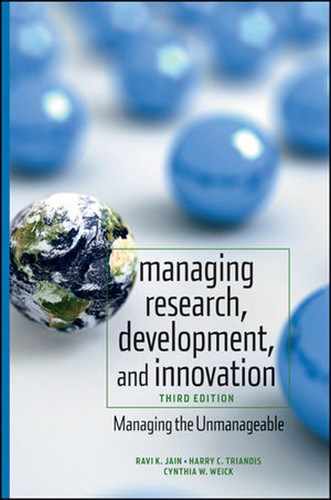15.6. SUMMARY AND CONCLUDING COMMENTS
What follows are our opinions about investment in basic research. Readers may find them debatable, but we hope to stimulate their thinking on this subject.
In the United States, the largest and the most creative segment of the basic research enterprise resides at academic institutions (National Academy of Engineering, 1993).
We believe that both the public and Congress need to be educated about the importance of basic research and about the need for increased funding of this activity. In a democracy there is always some pressure to fund projects that would meet constituents' current needs. Basic research often has its payoffs years later and, at times, after the present constituents have died. It is important to understand this time lag.
The National Research Council of the National Academy of Sciences did a very thorough review of the evidence and concluded that it is very clear that basic research gets initiated by individuals. It recommended support of investigator-initiated, merit-reviewed, university-based research to a much greater extent than support of particular universities in particular states (funding favored by some members of Congress, for obvious reasons). For details see Allocating Federal Funds for Science and Technology (1995), National Academy Press, Washington, D.C.
There is a need for research on science and society. Some scientific developments have adverse effects on health, social well-being, and the environment. A full understanding of these relationships is important and can be used to influence some applied research. In our opinion, basic research rarely can be blamed for the adverse effects of science on society. It is usually the applications of basic research that lead to societal problems.
The amount spent on basic research is minuscule relative to the amount spent on applied research. It is not appropriate to blame basic research for not solving the problems of international competitiveness. The blame can often be placed on the poor decisions of corporate boards of directors. In Japan the Chief Science Officer of the corporation is a member of the board of directors in about 95 percent of the corporations; in the United States, that is the case for only 20 percent of the corporations (Roberts, 1995).
In sum, we believe that basic research must receive considerably more emphasis in the future if U.S. competitiveness is to be maintained in the international marketplace.
